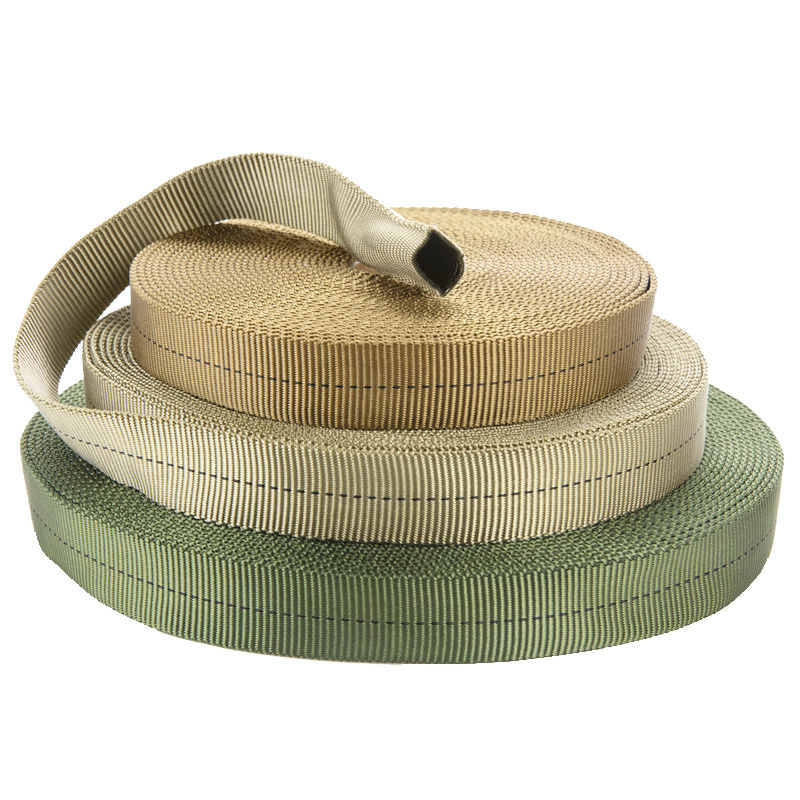How Military Webbing Enhances the Performance of Tactical Apparel
How Military Webbing Enhances the Performance of Tactical Apparel
Table of Contents
Introduction to Military Webbing in Tactical Apparel
Understanding Military Webbing: Definition and Composition
The Benefits of Military Webbing in Tactical Clothing
Applications of Military Webbing in Tactical Gear
Design and Innovation in Military Webbing Technology
Durability and Perform
Sep 11,2025

How Military Webbing Enhances the Performance of Tactical Apparel
Table of Contents
- Introduction to Military Webbing in Tactical Apparel
- Understanding Military Webbing: Definition and Composition
- The Benefits of Military Webbing in Tactical Clothing
- Applications of Military Webbing in Tactical Gear
- Design and Innovation in Military Webbing Technology
- Durability and Performance: Testing Military Webbing
- Future Trends in Military Webbing and Tactical Apparel
- Frequently Asked Questions
- Conclusion: The Impact of Military Webbing on Tactical Apparel
Introduction to Military Webbing in Tactical Apparel
Military webbing plays a vital role in enhancing the performance of tactical apparel, providing a myriad of functionalities that are crucial for military personnel and outdoor enthusiasts alike. This unique textile technology ensures that tactical clothing is not only durable but also practical, allowing wearers to efficiently carry essential gear. In this article, we will delve into the various aspects of military webbing and explore how it transforms tactical apparel into high-performance gear tailored for the demands of intense environments.
Understanding Military Webbing: Definition and Composition
Military webbing refers to a strong, woven fabric, typically made from nylon or polyester, designed to withstand extreme conditions. It often features a series of loops and attachment points, allowing it to be integrated seamlessly into clothing, vests, and gear. The composition of military webbing is engineered for strength and durability, making it ideal for applications in tactical situations.
Materials Used in Military Webbing
The choice of materials is critical in the manufacturing of military webbing. High-tenacity nylon and polyester are common choices due to their excellent tensile strength and resistance to abrasion. Furthermore, many manufacturers treat these materials with water-repellent coatings to enhance performance in wet conditions.
The Benefits of Military Webbing in Tactical Clothing
Integrating military webbing into tactical apparel provides several key benefits:
1. Enhanced Load-Bearing Capacity
Military webbing is designed to distribute weight evenly, providing a robust platform to attach various gear and tools. This feature allows servicemen and women to carry necessary equipment without compromising mobility.
2. Customizability and Versatility
Military webbing systems can be customized to accommodate different types of attachments, making tactical gear highly versatile. Users can modify their setups according to mission requirements, ensuring they are always equipped with the right tools.
3. Durability and Longevity
The rugged nature of military webbing means it can withstand harsh environmental conditions, including extreme temperatures and heavy moisture. This durability extends the life of tactical apparel, providing a better return on investment for users.
4. Improved Comfort and Mobility
Modern military webbing is designed to minimize bulk while maximizing functionality. This balance allows for greater freedom of movement, crucial for operational effectiveness.
Applications of Military Webbing in Tactical Gear
Military webbing finds extensive application in various tactical clothing items, including:
1. Tactical Vests
Tactical vests equipped with military webbing offer ample space for attaching pouches, holsters, and other essential gear. This feature is invaluable for military personnel who need quick access to ammunition, medical supplies, or tools.
2. Backpacks and Load-Bearing Equipment
In tactical backpacks, military webbing is integral in enhancing load distribution. Users can attach additional pouches or gear externally, increasing storage capacity without adding internal weight.
3. Clothing and Protective Gear
From jackets to pants, military webbing is often incorporated into tactical clothing for additional functionality. Various attachment points allow for the integration of knee pads, elbow pads, or other protective gear.
Design and Innovation in Military Webbing Technology
Recent advancements in technology have led to innovative designs in military webbing, improving its functionality and performance. Lightweight materials and advanced weaving techniques enable manufacturers to create webbing that is both strong and lightweight.
1. Modular Lightweight Load-carrying Equipment (MOLLE)
One of the most significant innovations in military webbing is the MOLLE system, which allows for a customizable load-bearing setup. This system utilizes a series of horizontal webbing rows stitched onto tactical gear, creating a versatile platform for attaching pouches and accessories.
2. Quick-Release Systems
Modern tactical apparel increasingly incorporates quick-release systems, allowing users to detach gear rapidly in emergencies. This innovation enhances safety and efficiency in high-pressure situations.
Durability and Performance: Testing Military Webbing
When assessing the performance of military webbing, several critical factors come into play, including:
1. Stress Testing
Manufacturers conduct extensive stress tests to determine the load-bearing capabilities of military webbing. These tests simulate real-world conditions, ensuring that the webbing can withstand the strains of tactical operations.
2. Environmental Resistance
Durability tests also cover environmental resistance, including exposure to water, UV radiation, and extreme temperatures. Quality military webbing should maintain its integrity and performance despite these challenges.
Future Trends in Military Webbing and Tactical Apparel
As technology continues to advance, the future of military webbing looks promising. Trends to watch for include:
1. Smart Textiles
Innovations in smart textiles are beginning to influence military webbing design. These fabrics can monitor conditions, offer feedback, or even charge electronic devices, elevating the functionality of tactical apparel.
2. Sustainable Materials
With increasing awareness of environmental issues, manufacturers are exploring sustainable materials for military webbing. Bio-based fibers and recycled materials are becoming more prevalent, providing eco-friendly options without compromising performance.
Frequently Asked Questions
1. What makes military webbing different from regular webbing?
Military webbing is specifically designed for durability and strength, utilizing advanced materials and construction techniques to withstand extreme conditions.
2. Can military webbing be used in civilian tactical gear?
Yes, many civilian tactical brands adopt military webbing technology to enhance the functionality of their gear.
3. How do I maintain military webbing in tactical apparel?
To maintain military webbing, regularly inspect for wear and tear, clean it according to the manufacturer's instructions, and store it in a dry, cool place.
4. Is military webbing waterproof?
While military webbing is often treated to resist water, it is not entirely waterproof. It may offer some water resistance, but prolonged exposure to water can still affect its integrity.
5. What types of attachments can be used with military webbing?
A variety of attachments, including pouches, holsters, and additional gear, can be integrated with military webbing, providing customization based on mission needs.
Conclusion: The Impact of Military Webbing on Tactical Apparel
Military webbing significantly enhances the performance of tactical apparel, providing unmatched durability, versatility, and functionality. Its applications extend across various tactical gear, making it an essential component for both military and civilian users. As technology advances, the future of military webbing holds even more promise, blending innovation with sustainability to meet the evolving needs of tactical professionals. By understanding the benefits of military webbing, we can appreciate its vital role in optimizing tactical apparel for maximum performance in challenging environments.
Related Posts
Contact Us
E-mail:
Phone/WeChat:
Factory Address:
No. 601 ShiXing Road, Jimei District, Xiamen, 361024, China







